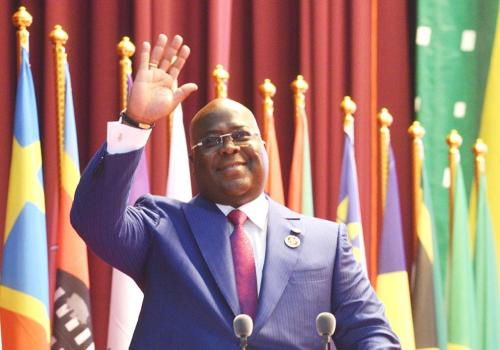The Southern African Development Community (SADC) intends to develop the many natural resources in the Region and encourage local transformation in order to create decent jobs for the youth and fight against poverty, SADC Chairperson, His Excellency Felix Antoine Tshisekedi, President of the Democratic Republic of Congo (DRC), has said.
Speaking during the 42nd Summit on 17th August 2022, held in Kinshasa, DRC, President Tshisekedi said the transformation should be carried out in line with the SADC Industrialisation Strategy and Roadmap 2015-2063 and in conformity with the Regional Indicative Strategic Development Plan (RISDP) 2020-2030.
The transformation will require the mobilisation of resources from within the Region, in addition to contributions from international cooperating partners and private and foreign investors. In this perspective, H.E President Tshisekedi encouraged SADC to reflect on the need to set up an industrialisation fund in order to finance industrialisation projects and programmes and get out of dependence on external partners.
In this way, SADC will be able to achieve a major economic and technological transformation at national and regional levels towards the deepening of regional integration as advocated by the SADC Industrialisation Strategy and Roadmap 2015-2063.
H.E Tshisekedi called on Member States to work closely together to unlock regional value chains in key sectors such as agribusiness, mining and pharmaceuticals, in which the Region is richly endowed.
Outgoing SADC Chairperson, President Lazarus Chakwera of Malawi, said SADC has been a vehicle for promoting regional integration, economic and social-political development and that in just over four decades of joint efforts to consolidate unity, the Region has made a lot of progress, growing from nine Member States with a combined population of 60 million and a GDP of US$20 billion, to a membership of 16 states with a total population of about 340 million people and a GDP of US$720 billion.
SADC has overcome a lot of challenges and its most recent areas of progress include the successful ratification of the African Continental Free Trade Area (AfCFTA) by Member States as a platform for advancing economic integration, and cooperation in the management of the COVID-19 pandemic in the face of anti-SADC COVID related policies in the global north. SADC has also collaborated in repelling outbreaks of violent extremism, and strengthened ties between Member States to thaw away historic tensions and usher in a new era of solidarity and community.
H.E Chakwera said SADC’s most recent challenges include the wave of climate change related impacts that now regularly devastate Member States, and the difficult task of securing global support for mitigation and adaptation efforts. They also include the security concerns faced by the DRC and Mozambique, and overcoming the structural and infrastructural challenges that stand in the way of the Region’s quest to vaccinate its populations and increase industrial production, and trade among Member States.
He, however, said despite the mixed fortunes, SADC is open for business, safe to travel to, peaceful to live in, is a trusted partner for growth and development, is ready for trade and investment, and is here to stay and maintain its rightful role as a regional and global player in all spheres of life.
The theme for this year’s 42nd SADC Summit was “Promoting industrialisation through, agro-processing, mineral beneficiation, and regional value chains for inclusive and resilient economic growth”. This theme builds on the previous themes that have prioritised industrial development since 2014. The focus for this year is on agro-processing and mineral beneficiation as well as the promotion of regional value chains.
In his foreword in the 42nd SADC Summit Brochure, Executive Secretary H.E Elias M. Magosi said SADC was rich in mineral resources, but the question that needs urgent attention is who is benefitting from these resources?
“My heart bleeds that, we as a Region continue to export our commodities in their raw form, and in the process denying ourselves the full potential of our exports. It is, therefore, critical for the Region to start beneficiating its mineral resources and agro-produce so that we increase the value of our exports and also create jobs for our citizens. Currently, we are exporting jobs and wealth when we sell our natural resources in their raw form,” said H.E Magosi.
He said promoting industrialisation through agro-processing, mineral beneficiation, and regional value chains is in line with the aspirations of the RISDP 2020-2030, SADC Vision 2050 and essential to the realisation of the implementation of the SADC Industrialisation Strategy and Roadmap (2015-2063). As such, Member States must continue to domesticate these regional strategies while international partners should align their support to these strategic guidelines.

